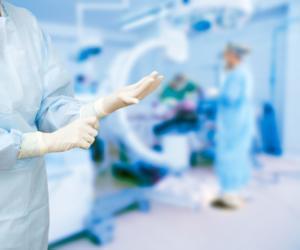What Do Doctors Check in Prostate Cancer?

When we talk about prostate cancer, we are referring to a condition that affects the prostate gland. The condition is only found in men. The simple reason is that only men have the prostate gland. The prostate gland is located beneath a man's bladder and around the urethra. The primary function of the prostate is to produce semen in the body.
How does prostate cancer affect your body?
Before knowing what doctors wish to check for during examination for prostate cancer, it is also important to understand what happens if you are diagnosed with prostate cancer. This disease causes a continuous and abnormal growth of cells in the prostate.
As time goes, the condition develops from one stage to another. The growth of more cells accompanies each of these results. Cancer starts inside the prostate and then forms cells on the outer area. It continues to proliferate to other body organs if not treated, such as the liver, seminal vesicles, and lymph nodes.
Prostate cancer is a condition that shows very little symptoms. This is particularly the case, especially during its early stages of development. As the disease develops in your body, it manifests different symptoms such as passing of too much urine and feeling pain while urinating.
In case you experience symptoms related to prostate cancer, it is always important to consult a doctor immediately. Sometimes, you may be worried of what the doctor would check for in your body during the consultation. Here are a number of things that doctors would check for in a prostate cancer screening:
Prostate-specific antigen (PSA)
During screening for prostate cancer, the doctor would like to check the level of prostate-specific antigen in your body. A test called prostate-specific antigen (PSA) test is carried out. The doctor will require a sample of your blood, which is mostly obtained from your arm.
PSA is a substance that is produced by the prostate, but in small amounts. Under normal circumstances, a man will have a little amount of this substance in his blood. In cases where there is an increased amount of PSA in the bloodstream, the doctor will be able to detect the probability of prostate cancer.
The prostate tissue
Your doctor will only want to check for specific cancer cells once other tests indicate the presence of prostate cancer. It is difficult to obtain these cells unless there has been a massive or steady development of the disease. The doctor will drive a very thin needle into your body to obtain samples of prostate tissues, which will undergo tests in the lab.
Growth of cancer cells
Depending on different factors such as the health of the patient and side effects, the doctor can decide to check for the presence of cancer cells on the prostate. The prostate gland is located just close to the rectum.
The doctor will use a lubricated and gloved finger to feel the growth of the cells. The finger is driven through the rectum to the prostate for the doctor to feel if there are cells on the prostate gland. It is rather an uncomfortable but simple process.
Health of other organs
After being diagnosed with prostate cancer, it’s possible that cancer cells can spread to other organs of the body, such as the liver, bones, or lungs. Doctors carry out tests to check any abnormalities of other body organs to rule out the spread of cancer.
The Bottom Line
Identifying the different factors that cause prostate cancer is important in the doctor's diagnosis and treatment plan. It is, thus, advisable to discuss with your doctor the necessary tests for your treatment.










